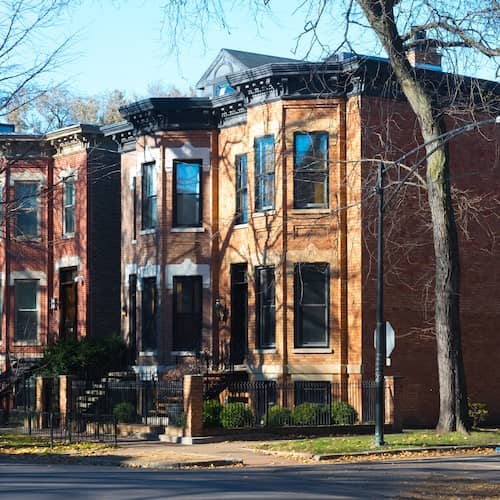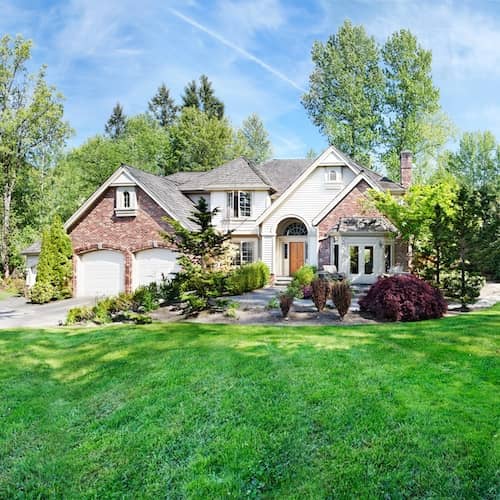How to determine a good investment property: Here’s what to look for
Contributed by Tom McLean
Oct 31, 2025
•5-minute read

If you’re starting to think about buying an investment property, you may be overwhelmed by the number of decisions you have to make, from how much rent to charge to whether the property is in a desirable location.
Since investment properties require significant financial resources, it’s important to do your research and learn about the business to increase your chances of long-term success.
Here are some tips on how to decide if an investment property is right for you, as well as which red flags to look out for and avoid.
What makes a property a good investment?
While you may buy a home based on your personal preferences, it's best to look at investment properties through an objective financial lens. The main criteria when assessing whether an investment property is worth your time and money is how profitable it can be.
Some of the key features you’ll want to look for in an investment property include:
- Steady cash flow
- Low maintenance costs
- Real estate market appreciation opportunity
- Location of investment property
- High rental demand
Strong rental demand and desirable location
Buying a property in a location that’s desired by renters can help you avoid vacancies and generate a steady income.
High-demand properties often are in areas with a high concentration of renters, low unemployment rates, and increasing rents. Another positive sign is that properties sell quickly.
There are many resources to turn to for market research, including real estate listing platforms, public records, local government reports, and multiple listing service (MLS) databases.
Neighborhood safety is another important consideration. Renters want to know that they live in a safe place. Look for areas with low crime rates or properties located near fire stations or medical care facilities.
Positive cash flow from the outset
A positive cash flow means that your rental income exceeds all property expenses, including the monthly mortgage payment, property taxes, landlord insurance, and maintenance. You also may need to set aside money to pay for unexpected repairs and other expenses that may arise.
To determine your cash flow, subtract all your expenses from your estimated rental income. Consider adding a buffer amount or estimating increases in rental income so that you can account for rising costs of maintaining your rental property.
High ROI and cap rate
When looking at real estate investment properties, don’t stop at the price. You want to consider the return you can expect to achieve. The higher your return on investment (ROI), the more likely you are to turn a profit while weathering the challenges that come with owning an investment property.
The capitalization rate, or cap rate, is a measurement you can use to figure out the expected rate of return for an investment property. To calculate the cap rate, take your net operating income (NOI) and divide it by the current market value of the property. From there, you'll come up with a percentage. Your NOI is the amount you have after subtracting expenses from your expected rental income.
Say the current market value of the property is $300,000, and your NOI is $15,000. Using this formula, the cap rate is 5%. Most real estate investors look for a cap rate ranging from 4% to 8% or more. The higher the cap rate, the greater the risk. But so is the rate of return you could receive.
Low ongoing maintenance needs
When evaluating any investment property, consider those that are well-maintained. Also, examine the major components of the home and its overall condition.
For example, if you’re considering a home that will need a new roof in a few years, then you will need to factor that cost into your calculations. Other factors to consider include the age of the HVAC systems and the durability of the exterior finishes.
It’s important to calculate how much you’ll need to invest in the property and whether you’ll be able to recoup your investment.
Strong tenant appeal
Even if you find a rental property in a location with strong renter demand, it may be tough to rent out your house if the place itself doesn’t appeal to tenants. Take the time to navigate the property the property from a renter’s perspective.
Think about the property itself: Does it have lots of natural light? Is there a laundry facility? How much storage space is available? Where will tenants park?
Another major factor to consider is the neighborhood. Aside from safety, look at nearby amenities, such as public transportation, parks, grocery stores, and restaurants.
If you’re unsure what features might appeal to tenants, review current rental property listings to see what others are offering.
Market appreciation potential
Selecting properties in growing neighborhoods can increase your chances of finding and retaining tenants. Some indicators are expanding or growing industries, strong job growth, and ongoing infrastructure projects.
For example, if an area is building schools, hospitals, or public transportation routes, it may be growing and demand for rental homes may increase.
Common mistakes to avoid when choosing an investment property
Selecting a property that offers you long-term income potential is a major part of your real estate investment journey. Avoiding mistakes is just as important as looking at key factors that increase your chances of success.
Five common mistakes when picking real estate investment properties include:
- Failing to consider local rental demand. Ignoring this crucial factor could mean that your property sits vacant longer, eating into your profits.
- Underestimating repair costs. Expensive repairs could eat into your returns and cash flow.
- Buying a property based on your emotions. Investing in a property based solely on how you feel about it could mean you haven’t properly looked at the potential ROI on your investment.
- Skipping the inspection. Forgoing a home inspection means you may miss areas that require repairs, which could lead to unexpected expenses later.
- Not researching landlord-tenant laws. Some areas, like homes with a homeowners association, may limit whether you can rent out your property.
Investment property financing options
You have several options for financing a rental property as investment. The best choice for you will depend on your creditworthiness, the loan amount, and the amount of cash you have on hand.
One of the most common options is a conventional loan. These loans allow you to buy a multifamily home with up to four units. Unlike a loan for a primary residence, you may need a larger down payment and a higher credit score to qualify.
Other popular ways to pay for an investment property include taking out a home equity loan on another property you own, or taking out a debt service coverage ratio loan. With a DSCR loan, you qualify by the income potential of the investment property you want to purchase.
FAQ
Here are answers to common questions about how to find a good investment property.
Where can I find an investment property?
You can find investment properties through real estate auction sites, working with local real estate agents, and the MLS.
What’s the best type of investment property for beginners?
In most cases, multifamily properties or single-family homes in stable real estate markets are best for beginners.
Should I buy a fixer-upper as an investment?
Unless you have extensive investing experience, work with a trusted contractor, or can do professional quality work yourself, it may not be the best move. Especially if it’s your first investment property.
How do I know if the property will be profitable?
You can estimate whether a property could be profitable by subtracting your expected expenses for maintaining the home from the predicted rental income.
The bottom line: Being picky can pay off
Looking for properties in high-demand locations with low maintenance costs and positive cash flow is a smart strategy for finding an investment with long-term income potential. Before making a purchase, thoroughly research the property, crunch the numbers, and work with trusted professionals to help you decide if it’s a good investment.
Ready to buy an investment property? Start the mortgage process with Rocket Mortgage® today.
This article is for informational purposes only, and is not a substitute for professional advice from a medical provider, licensed attorney, financial advisor, or tax professional. Consumers should independently verify any service mentioned will meet their needs.

Sarah Li Cain
Sarah Li Cain is a freelance personal finance, credit and real estate writer who works with Fintech startups and Fortune 500 financial services companies to educate consumers through her writing. She’s also a candidate for the Accredited Financial Counselor designation and the host of Beyond The Dollar, where she and her guests have deep and honest conversations on how money affects our well-being.
Related resources

5-minute read
The 1% rule in real estate: What to know before investing
Measuring your return on investment can feel like a lot of math. The 1% rule can make it easier to figure out how much you should spend on your investment.
Read more

7-minute read
Real estate investing: How many mortgages can you have?
Interested in multiple mortgages? Discover how many mortgages Fannie Mae allows, the borrowing requirements and alternative lending options to consider.
Read more
9-minute read
Types of real estate investments: Everything you need to know
The types of real estate investments can include active ventures, like house flipping, and passive options, like REITs. Find the right investment for you.
Read more